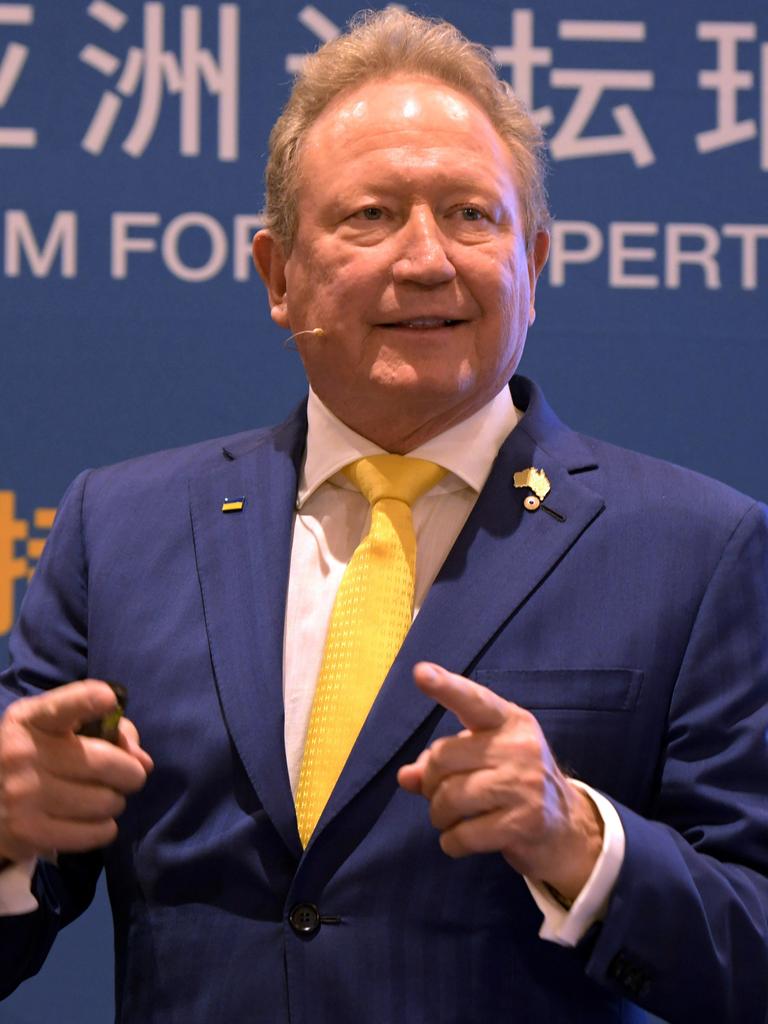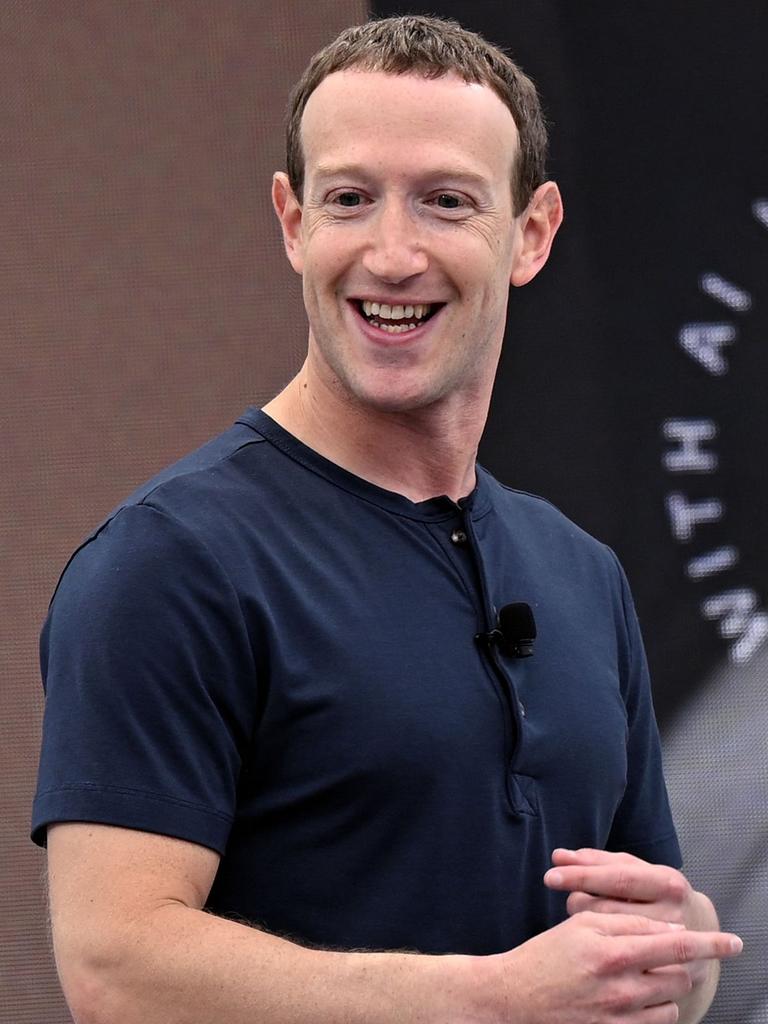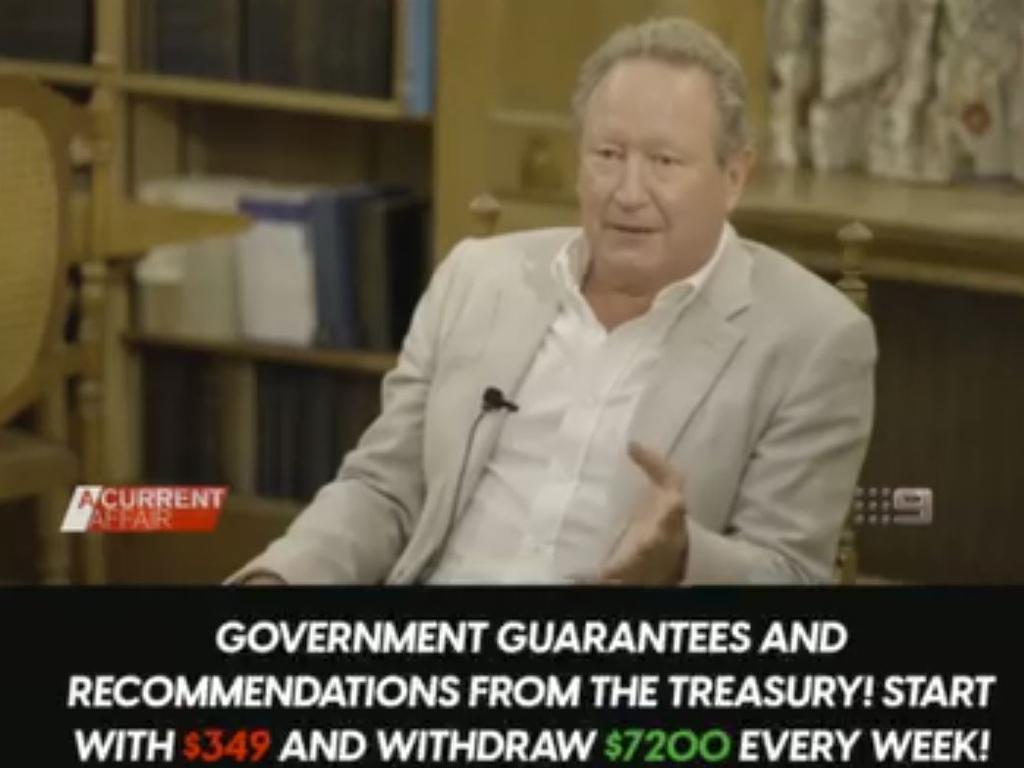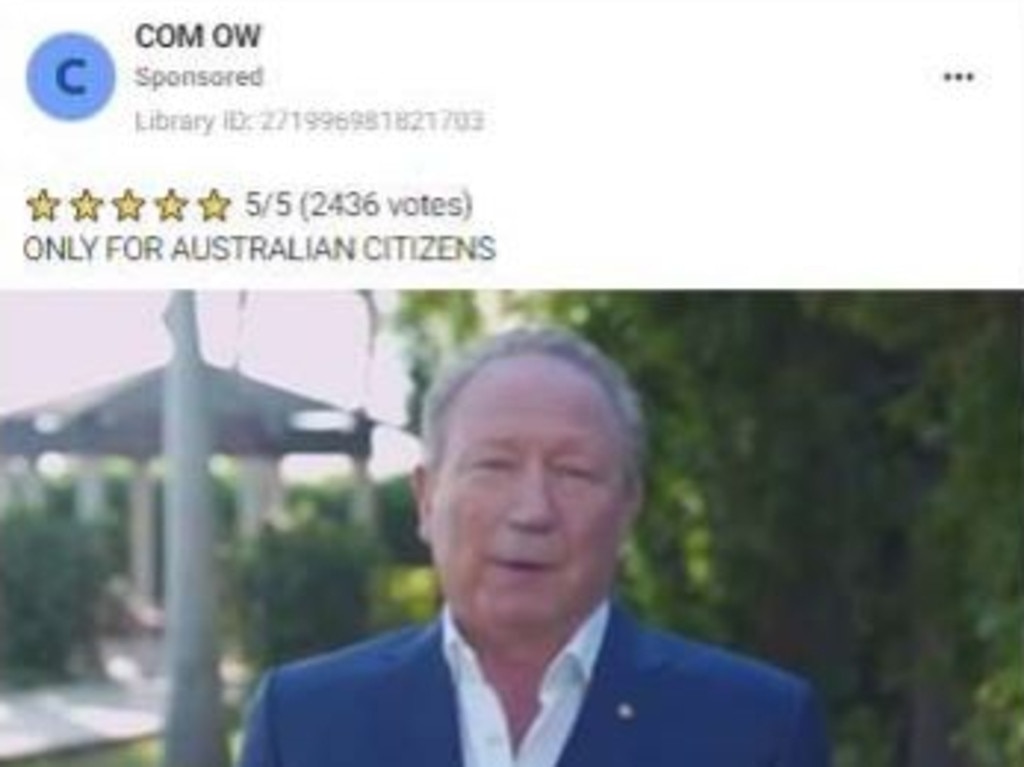Billionaire Andrew Forrest fights Meta over fake ads, filing lawsuits in both Australia and the US
Andrew Forrest is the unlikely underdog in a battle against Facebook’s parent company, gearing up for a David-and-Goliath battle that could throw a lifeline to desperate scam victims.
Australian billionaire Andrew “Twiggy” Forrest has been the victim of at least five new scam ads published on Meta’s platforms every single day.
His legal fight to get Meta to remove the crypto and investment scams bearing his likeness, will be heard in both Australia and the US next week, in what is shaping up to be a David and Goliath battle between the mining magnate and the trillion-dollar social media platform.
The dual hearings will be a test case on whether the tech company can be held liable for adverts on its platforms.
If Dr Forrest – the unlikely underdog in this scenario – succeeds, it could help innocent Australians who fall victim to online scams on Mark Zuckerberg’s Meta, as well as protect those who have had their likeness used in fraudulent adverts published on its platforms.


The Fortescue Metals executive chairman can only sue Meta in California, because the tech giant asserts it does not do business in Australia and therefore Australian courts have no jurisdiction over it. That’s despite the company making $1.7 billion in revenue from its Australian sites in 2022.
In a pincer move, Dr Forrest has also instigated criminal charges against the tech company in WA. Meta has to answer criminal charges in Australia.
That case has been taken over by the Commonwealth and Dr Forrest will be a witness in those proceedings.
The next stage of both cases will be heard around the same time on April 12, Australian time.
Dr Forrest told News Corp Australia he was “taking this legal action because ordinary Australians – mums, dads, grans and grandads are falling victim to these horrible scams.
“They are losing their life savings and do not have the resources to fight back,” Dr Forrest said.
“Social media companies must use much more of their vast resources and billions of dollars in annual revenue to improve the integrity and security of their platforms.”

His battle to remove fake ads from Meta, has been a decade long, but the explosive court documents from the Californian case reveal he is still being victimised.
During a 202-day period last year, 1154 new fake ads using his likeness were distributed on Meta’s platforms. That works out to be more than five a day.
“Meta has not stopped Scam Ads from appearing on Meta’s social media platforms or taken the Scam Ads down — and in fact they appear to be multiplying,” Dr Forrest said in papers.
The fake ads where Dr Forrest appears to be promoting various investments, tricked one Australian woman out of $670,000, while an Australian man was swindled out of $77,254.
The papers suggest Meta will claim immunity under a 1996 US law Section 230, which protects tech platforms from being liable for third party content.

However, Dr Forrest will argue Meta is responsible for the fraudulent ads placed via their Meta Ads platform because they are processed by the company before being released.
“Meta could have chosen to design and manage its advertising business to prevent or minimise the kind of Scam Ads that gave rise to this litigation,” the court papers state. “The fact that Meta chose — and continues to choose — not to do so is negligent.”
Dr Forrest said Meta “should be ordered to disgorge its ill-gotten gains including advertising revenues derived from the Scam Ads”.
In the court papers Facebook’s Australian CEO William Easton said in a letter to Dr Forrest that the issue was “an extremely challenging, industry-wide problem which we are working to address. However I do want to be very clear – scam ads are not permitted on Facebook.”
Meta has been approached for comment.
What is Section 230?
This 1996 US law gives Meta and other online platform operators immunity from third party content on their platforms.
It was designed to protect them from being liable for what one user says to another.
Meta cannot be sued in Australia, because it asserts that it does not do business in Australia and is not subject to Australian law, where there is no equivalent to Section 230 immunity.
Therefore, in a Catch-22 situation, aggrieved parties can only sue Meta in California, where Meta asserts that it is entitled to Section 230 immunity.
Andrew Forrest will claim adverts are in fact not published by third parties, but by Meta, via its ad platform, and therefore it is responsible and not protected by Section 230.
More Coverage
Originally published as Billionaire Andrew Forrest fights Meta over fake ads, filing lawsuits in both Australia and the US





